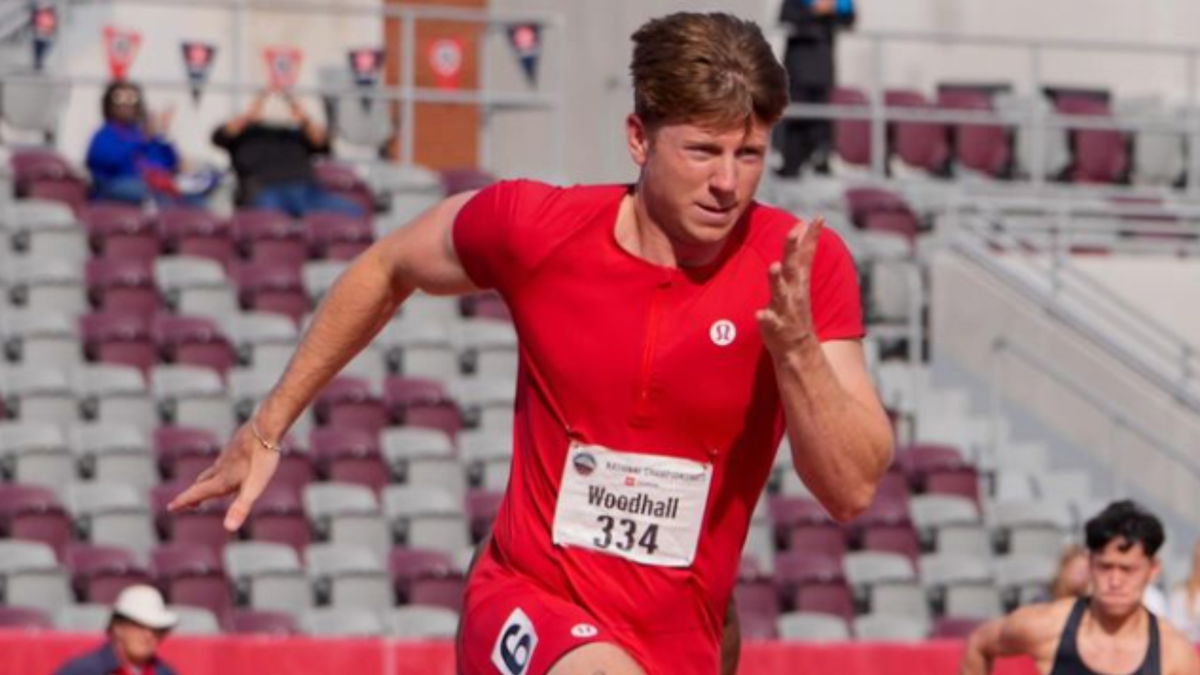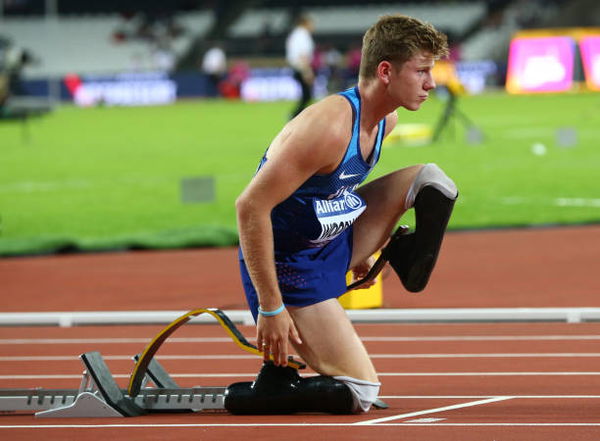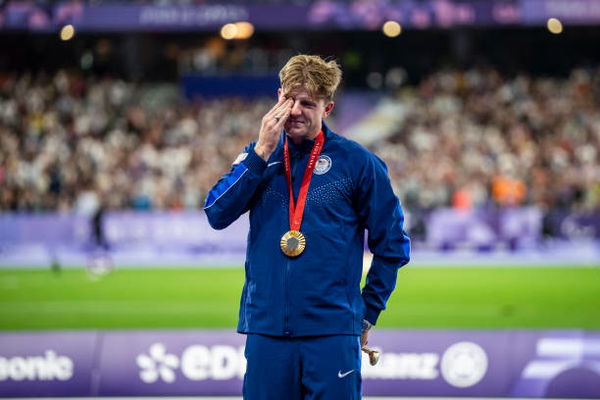

“I was pretty disappointed after running a bad season opener,” he admitted in a recent Instagram post, opening up to fans with uncommon honesty. For most athletes, a performance like this might be shrugged off or buried under rehearsed optimism. But for Paralympic star Hunter Woodhall, the truth hits harder and lands deeper. His season debut at the World Athletics Continental Tour on April 26 didn’t go as planned. Clocking 48.13 seconds in the 400m T62, Woodhall finished last, nearly three seconds behind the winner, Zandrian Barnes. The moment wasn’t just about results. It became a reflection point, laced with frustration, vulnerability, and something even more troubling.
Watch What’s Trending Now!
Just eight months removed from a gold-medal high, Woodhall’s return to the track wasn’t the triumphant homecoming many expected. The adrenaline was there. So was the crowd. But his body didn’t cooperate and in the days that followed, things took a surprising turn for Tara Davis-Woodhall’s husband. And now Hunter dropped another update that has since sparked growing concern. He shared a revelation not about performance but about health.
ADVERTISEMENT
A lingering, serious allergic reaction has plagued him behind the scenes. Hunter Woodhall took to Instagram Stories, visibly battling through discomfort, to pose a question many in the Midwest could relate to: “I had fairly bad allergies in Arkansas but this is on another level? Is hay fever a thing here?” Dressed in a white tee and standing in a modern, sunlit home with packed boxes around him, Hunter’s mirror selfie wasn’t just a casual post.
ADVERTISEMENT
It was a sign that something was seriously off. He followed it up with a poll asking his followers, “Anyone in the Midwest with allergies down bad rn?” giving two blunt options. “Yes, allergies are bad rn” or “No, you’re probably just sick.” The post, both light-hearted and concerned, hinted that the ongoing battle with health was far from over. This isn’t the first health scare the 26-year-old Paralympian has faced this year.

Back on March 4, Hunter had shared another vulnerable moment through Instagram, this time with a more serious tone. “Came to Utah to spend time with my dad after his open heart surgery. Yesterday I had horrible stomach pain; it turns out I have to get my appendix removed. So we will be recovering together [heart emoji],” he wrote alongside a picture of himself looking visibly distressed.
What was supposed to be a supportive family trip turned into an emergency of his own. In another update from his hospital bed, Hunter posted a photo pointing upwards toward the caption, “Ready for lil emergency surgery. Didn’t need an appendix anyway.” The final update from that health episode came shortly after his procedure, where Hunter appeared on video, groggy but optimistic.
“Just made it out of surgery, feeling pretty good. So everything went well. Thanks for all the thoughts and prayers. Well, I’m straight. I didn’t need that appendix s— anyways.” According to the Cleveland Clinic, recovery from an appendectomy typically takes one to three weeks. While Hunter’s immediate focus was on healing. Soft foods, reduced movement, and rest. His resilience goes much deeper. From his earliest days, life has tested him.
Hunter Woodhall’s journey is far from over
Despite a tough race at the Drake Relays, Hunter Woodhall didn’t flinch. Speaking with Drake Athletics, he stayed level-headed, sharing that his training had only recently pivoted to speed work, and this was the latest he’d ever started a season. Instead of framing his performance as a disappointment, he approached it as part of a long game. Every step, even the tough ones, was part of a bigger plan designed to peak at the World Championships later in the year.

For Woodhall, this phase is about far more than crossing the finish line first. It’s about trusting the process, even when the results don’t immediately show it. The race in Des Moines may have felt like a stumble, but for him, it was part of a broader plan. He’s not chasing validation from every race anymore. Instead, he’s embracing the grit and grind that comes with elite sport.
With a strong mental game, patience, and a crystal-clear vision of what lies ahead, Woodhall is carving a comeback built on resilience rather than instant gratification. That unwavering mindset has defined his entire career. Born with a disability that led to a double amputation before his first birthday, Woodhall didn’t just overcome adversity. He crushed it.
He became a three-time NCAA All-American competing against able-bodied athletes, earned silver in Rio 2016, followed by bronze in Tokyo 2020, and finally struck gold at the 2024 Paris Paralympics. Alongside his wife, Olympic long jump champion Tara Davis-Woodhall, the two are redefining what success looks like. Proving that limits exist only where belief ends.
ADVERTISEMENT
ADVERTISEMENT
ADVERTISEMENT
ADVERTISEMENT